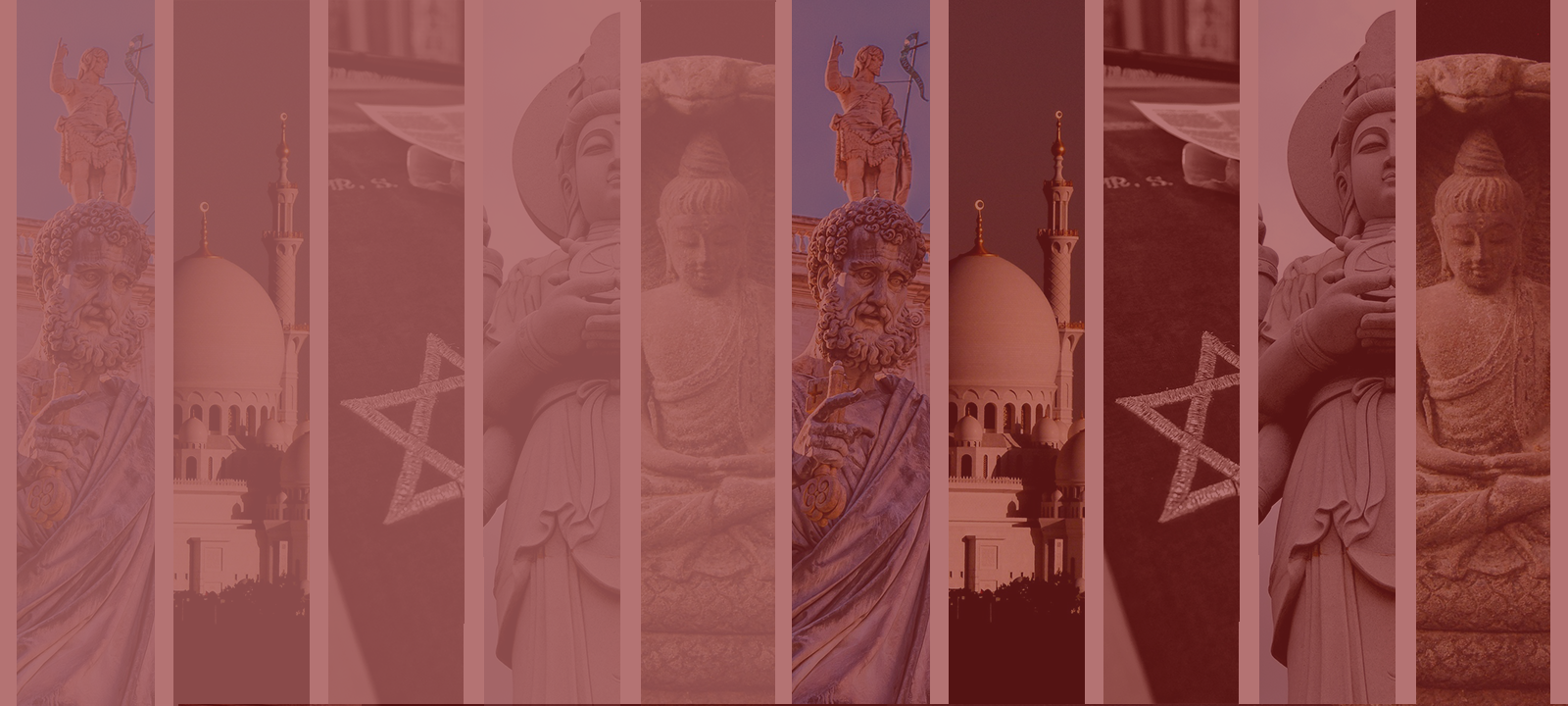
VII Międzynarodowy Kongres Religioznawczy pt. Religie. Tradycja i nowoczesność
VII International Congress of Religious Studies: Religions. Tradition and Modernity
Gdynia, 19-21.06.2024 r. | Akademia Marynarki Wojennej
Gdynia (Poland), June 19-21, 2024 | Polish Naval Academy
VII Międzynarodowy Kongres Religioznawczy „Religie. Tradycja i nowoczesność”, Gdynia, 19-21 czerwca podejmuje problemy naukowe wskazujące na rolę tradycji i nowoczesności w rozwoju religioznawstwa, dla którego interesujące są zarówno zdarzenia, procesy, fakty, jak i humanistyczne idee traktujące religie jako pola szczególnego doświadczenia.
Program kongresu daje miejsce dla ponownego zainteresowania się tradycją religioznawstwa w tym polskiego. Przyjmując, że mija ponad 180 lat od zaistnienia systematycznych badań naukowych nad religiami, chcemy przypominieć odpowiedzi na pytania wyrastające z różnorodnych dociekań związanych z chęcią zrozumienia samego siebie, swoich potrzeb, relacji z innymi ludźmi i otaczającym ich światem, o ile są one dalej inspirujące naukowo.
Kibicujemy każdemu naukowemu zainteresowaniu problematyką religii mieszczącemu się w różnych tradycjach teoretycznych i metodologicznych, w równej mierzy tych empirycznych, jak i historyczno-fenomenologicznych. Pamiętamy o osiągnięciach religioznawstwa klasycznego ale pragniemy prowadzić debaty wokół pytań o status teoretyczno-metodologiczny nauk religioznawczych w postnowoczesnym świecie a szczególnie w świetle nie tak dalekiej wojny. Dokonujemy tym samym wglądu w dzieje nauk religioznawczych w Polsce, Europie i świecie użyczając miejsca dla nowych paradygmatów. Zdajemy sobie sprawę, że prowadzi to do szerokiej gamy refleksji nad religiami i religijnością. Pragniemy żeby kongres był reprezentatywny dla całego środowiska, dla różnych orientacje i szkół badawczych.
Kongresu „Religie. Tradycja i nowoczesność” sceptycznie podejmuje tematykę znaczenia religii w procesach małej i wielkiej historii oraz wzbudzającej kontrowersje nowoczesności. Dostarcza uporządkowanej naukowo materii ich obecności. Mamy nadzieję, że w obradach pojawią się niejednokrotnie tematy ważkie, wynikające z dramatu ludzkiego bytowania czy z szybkiego rozwoju technologii. Sięgniemy, taką mamy nadzieję, do nauk o komunikacji, kognitywistki, socjologii kulturowej, studiów międzynarodowych i wiedzy o polityce. Zajmiemy się religiami i religijnością korzystają z osiągnięć nauk przyrodniczych, technicznych i formalnych, m.in. związanych z rozwojem AI czy badań nad DNA. Tych wszystkich doświadczeń, które domagają się użycia pojęć religioznawczych.
Zdajemy sobie sprawę, że nowoczesność stymuluje nowe zjawiska religijne i włącza do ich badań nowe dyscypliny. Pamiętamy, że religie są istotowym elementem nowoczesności, przenikają jej wszystkie konteksty. Są tematami społecznymi, psychologicznymi, popkulturowymi i historycznymi. Narracje religioznawcze żywią się tą różnorodnością. Na kongresie oczekujemy jej analiz w różnych ujęciach, tonach i perspektywach. W trakcie kongresu punkty widzenia nie zawsze mają jednakową wartość, jednak sama gotowość głoszenia oraz ich dowodzenie są wartością.
Prof. AMW dr hab. Jerzy Kojkoł
Prezes Polskiego Towarzystwa Religioznawczego
-----
VII International Congress of Religious Studies "Religions. Tradition and Modernity", Gdynia, June 9-21, takes up scientific problems pointing to the role of tradition and modernity
in the development of religious studies, for which events, processes, facts, as well as humanistic ideas treating religions as fields of special experience of interesting.
The congress program gives room for renewed interest in the tradition of religious studies, including Polish religious studies. Assuming that it is more than 180 years since the existence of systematic scientific research on religions, we want to recall the answers to questions growing out of various inquiries related to the desire to understand oneself, one's needs, one's relations with other people and the surrounding world, as long as they continue to be scientifically inspiring.
We cheer any scientific interest in the problem of religion that falls within in different theoretical and methodological traditions, equally empirical ones and historical-phenomenological ones. We are mindful of the achievements of classical religious studies, but wish to conduct debates around questions about the theoretical and methodological status of religious studies in the post-modern world and especially in light of the not-so-distant war. Thus, we make an insight into the history of religious studies sciences in Poland, Europe and the world lending space to new paradigms. We realize that this leads to a wide range of reflections on religions and religiosity. We want the congress to be representative of the entire community, of different orientations and schools of research.
The Congress "Religions. Tradition and Modernity" takes a skeptical look at the importance of religion in the processes of small and great history and controversial modernity. It provides a scientifically structured matter of their presence. It is hoped that the deliberations will often include weighty topics arising from the drama of human being or the from the rapid development of technology. We will reach out, we hope, to communication sciences, cognitive science, cultural sociology, international studies and political knowledge. We will address religions and religiosity using the achievements of natural, technical and formal sciences, including those related to the development of AI or DNA research. All those experiences that demand the use of religious terms.
We realize that modernity stimulates new religious phenomena and incorporates new disciplines into their study. We remember that religions are an essential element of modernity, permeating all its contexts. They are social, psychological, pop-cultural and historical topics. Religious studies narratives feed on this diversity. At the congress, we expect to see its analysis in different approaches, tones and perspectives. At a congress, points of view do not always have the same value, but the willingness to express them and to argue for them is a value in itself.
Profesor Jerzy Kojkoł
President of the Polish Society for the Study of Religions